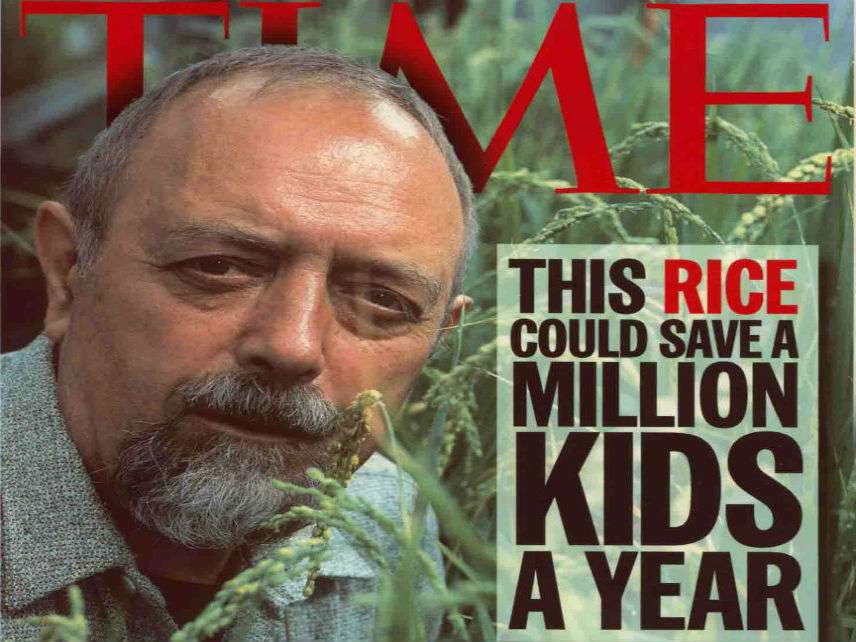Despite Climate Change, There Will Be Enough Food for 10 Billion in 2050
Food security is not the problem, but nutrition security could be.

Even in the worst-case climate scenarios, the world's farmers will be able to produce more than enough affordable calories to feed 10 billion people in the year 2050. So concludes a team led by the University of Illinois, Urbana-Champaign agronomist Gerald Nelson, whose study appeared recently in Nature Sustainability; Nelson has summarized the results in an op-ed for The Washington Post.
While that's excellent news, Nelson and his colleagues are worried that a diet rich in carbohydrate calories from abundant wheat, rice, corn, sorghum, and potatoes will be deficient in vital micronutrients needed to maintain health. "Micronutrient shortages such as Vitamin A deficiency are already causing blindness in somewhere between 250,000 and 500,000 children a year and killing half of them within 12 months of them losing their sight," notes Nelson. "Dietary shortages of iron, zinc, iodine and folate all have devastating health effects."
Nelson argues that crop breeders need to shift their research emphasis from food security to nutrition security. "A major effort must be made to increase the productivity—the yield per hectare—of nutrient-rich foods such as fruits, vegetables, nuts, seeds and beans," he urges. "By enhancing their productivity, we'll make them more available and affordable."
Certainly that would help. But an additional strategy would be to use modern biotechnology to enhance the nutritional value of such staple crops as wheat, rice, corn, sorghum, and potatoes. This is exactly what Swiss researchers have sought to do by developing golden rice, which boosts the amount of the vitamin A precursor beta-carotene in that grain. Unfortunately, fearmongering anti-biotech ideologues have for nearly two decades managed to block the commercial development of golden rice, thus condemning hundreds of thousands of children in poor countries to blindness and death each year.
Other biofortification researchers have used biotech to create rice that boosted folate in that grain by 150-fold; folate in lettuce by 15-fold; folate in beans by 84-fold. Crop breeders have used biotech to create rice varieties with higher iron and zinc content. Tomatoes, carrots, and lettuce varieties have been bioengineered to increase iodine levels.
Activists who continue to oppose the deployment of crops created by safe modern biotechnology will only exacerbate the challenges posed by the climate change they claim to worry about.


Show Comments (32)